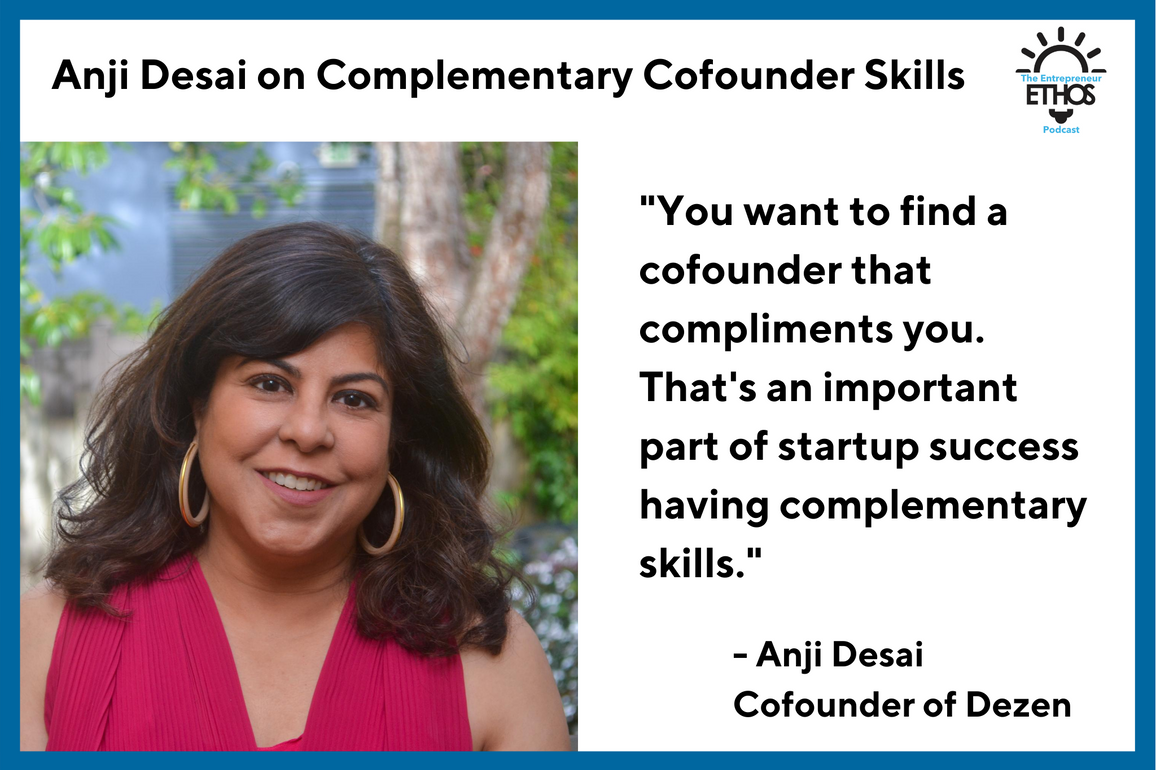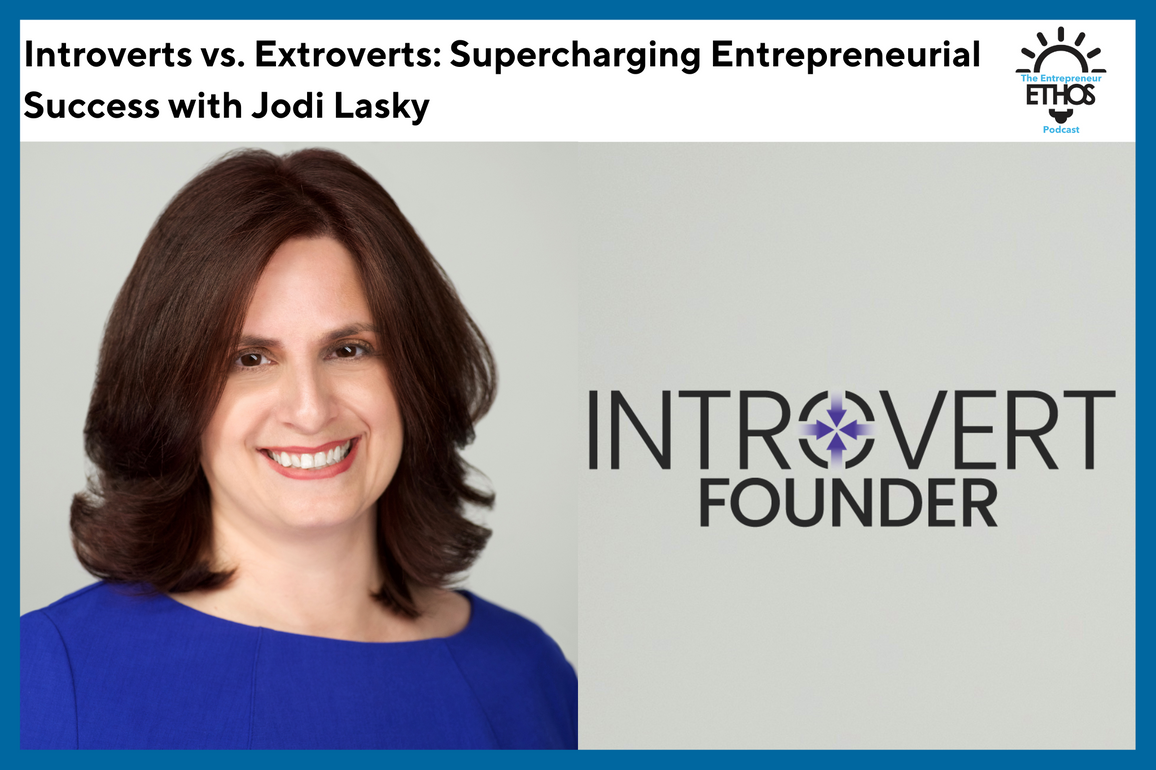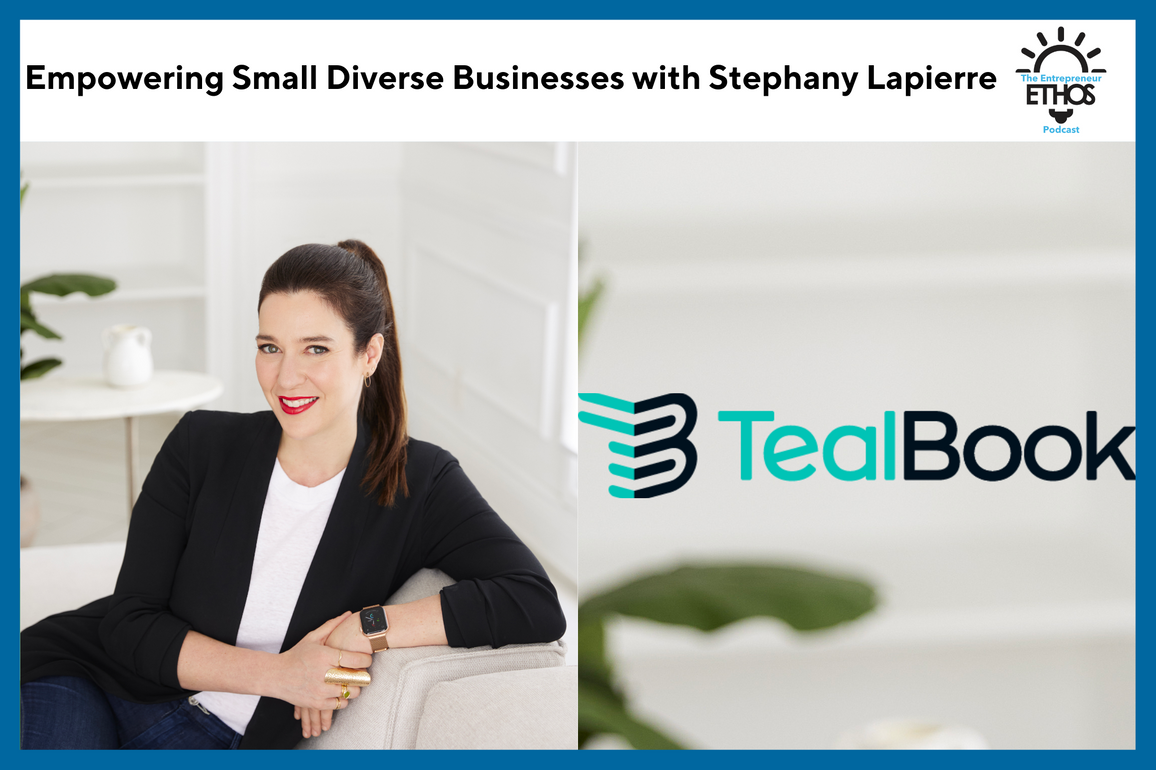Anji Desai on Complementary Cofounder Skills

Subscribe: Apple Podcasts | Spotify | Stitcher | Overcast
Context
This bonus episode is a bit of an experiment to sharpen my skills in machine learning. You see, I ran Anji and I’s original interview through a speech to text program to get the transcripts. I then took a look at the keywords and found this gem about complementary cofounders skills.
Find a Cofounder that Complements You
Anji and I were talking about how to figure out if you can work with a cofounder. That’s where this starts off at 29:10 in the original interview. The transcript is below. It has been edited for length, clarity, and typos.
Transcript
Anji: I'm really lucky. So Dilek, my current cofounder, is amazing, and we definitely were complementary to each other. And she's, you know, she’s coming from the design and jewelry background, so very creative. But she's quite analytical for a creative person, and I'm the more analytical side. But I feel like I have a very heavy creative side, and so we're very complementary to each other.
Even though I may not be as creative as her, but I get it, and I also know what good creative looks like. And she may not be as analytical as me, but she also knows these things need to be done like profit margins, financials, this all that stuff is really important. She may not be the one running the spreadsheet, but she understands the importance of it and so that has been great to.
Complementary skills, I think are so so important. It's not an either-or it's both are needed. I have to say I'm very also very lucky with my prior cofounder. I did two of my startups with him.
He was on the engineering side. We have very complementary personalities. I'm probably a fierier person. He's calmer. I do feel like when, especially when you're looking at a cofounder, you want someone that kind of compliments you, And then you also appreciate that skill, right? You don't feel that my skill is better than yours or, you know, that one is superior to the other. You realize how they work well together.
I think also when you build out the rest of the team like everybody is like a piece of this puzzle right. Where does their piece fit into the puzzle.
I've learned so much from both of them. This is about a lot of founders where they have cofounder issues or you don't agree on a lot of stuff. If you have complementary skills, that helps resolve those problem.
I've been really lucky. I can't say that doesn't mean we agree on everything. But I think where you're able to discuss it, not take it personally, not be mad at each other.
I also think that's important as you grow the team. Like your team needs to be able to come to you and have an open discussion … You're not going to do this alone, no matter how smart you are, no matter how much you know."

